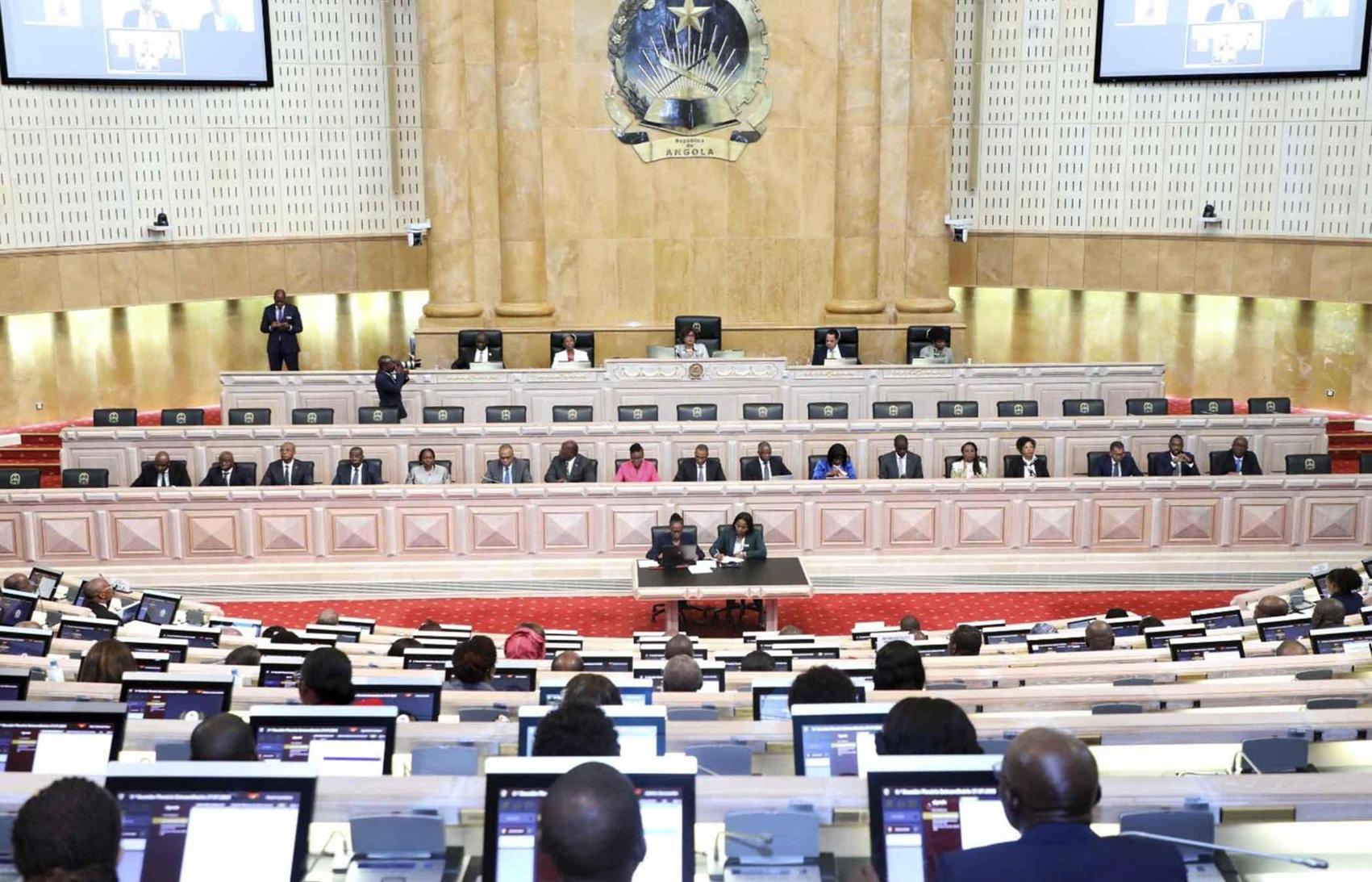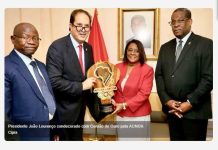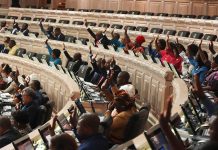Africa-Press – Angola. The Plenary of the National Assembly (AN) authorized, this Friday, the President of the Republic, as Holder of the Executive Power, to legislate on the update of the Customs Tariff of Import and Export Duties.
The Draft Resolution was approved with 98 votes in favour, zero votes against and 71 abstentions from the UNITA parliamentary group, at the 1st Extraordinary Plenary Meeting of the 2nd Legislative Session of the 5th Legislature.
The legislative authorization aims to update the Customs Tariff, in force in the country, approved by Presidential Legislative Decree no 10/19, of 29 November, in order to adapt it to the 2022 version of the Nomenclature of the Harmonized System (HS) of Designation and Goods Coding.
The scope of this legislative procedure is the adjustment of import duty rates applicable to imported goods and similar or identical products produced in the country, in order to encourage the increase and diversification of national production, particularly agricultural production and industrial protection.
This review and update also aims to promote and develop the manufacturing sector and the continuity of a series of industrial projects that, to date, are already capable of responding to the country’s needs and contributing to the reduction of the volume of imports of finished products.
The document has a preambular part and another dispositive part with six articles.
The AN also approved, through Resolution No. 3/11, of 11 February, Angola’s accession to the International Convention on the Harmonized Commodity Description and Coding System (HS), adopted in Brussels by the Customs Cooperation Council (Organization Customs), in June 1983, and the Amendment Protocol, adopted in Brussels, by the Customs Cooperation Council, in June 1986.
Based on the approval of the aforementioned International Convention, the Republic of Angola committed to aligning its respective tariff and statistical nomenclatures with the Harmonized System.
According to the reasoning, in addition to reasons of an international nature, it is imperative to ensure the full inclusion of the Customs Tariff of Import and Export Duties in the country’s current macroeconomic context.
When presenting the document in the hemicycle, the Secretary of State for Finance, Otoniel dos Santos, emphasized that legislative authorization constitutes an opportunity to promote or stimulate internal production and the creation of more jobs.
He informed that, within the scope of this diploma, any national citizen who enters the country with products worth up to one million kwanzas, without commercial characteristics, will be exempt from paying customs fees.
The tax relief, according to the official, will also affect the country’s border areas.
Otoniel dos Santos explained that these facilities or benefits are provided for in the border trade law.
UNITA justified its abstention from the request for legislative authorization to Parliament because it understood “that, despite being a constitutional prerogative of the President of the Republic, as Holder of the Executive Power, the scope intended to be given to this procedure constitutes an ambiguous reference from the Executive which, in practice, will not be reflected in the lives of Angolan citizens and companies, in particular”.
Cryptocurrencies
Also this Friday, the National Assembly approved, in general (unanimously), the Proposed Law on the Mining of Cryptocurrencies and other Virtual Assets.
The Diploma, approved with 167 votes in favor, no votes against and no abstentions, aims to limit the circulation of virtual currencies not issued by central banks, whose transactions take place between economic agents in the national territory, as well as prohibiting cryptocurrency mining activities or other non-legal tender cryptoassets and associated professional services.
The Proposed Law also aims to introduce into the Angolan legal system the legal regime applicable to the mining and circulation of cryptocurrencies, aiming to regulate the problems that arise from this economic activity.
The document, which will be discussed in the specialized committees of the National Assembly, has a preambular part and a dispositive part, systematized into five chapters and 17 articles.
angop
For More News And Analysis About Angola Follow Africa-Press






